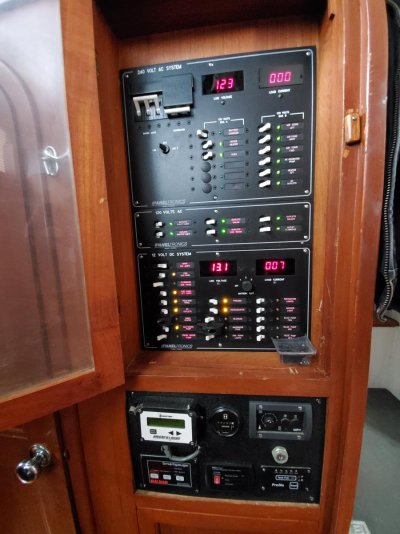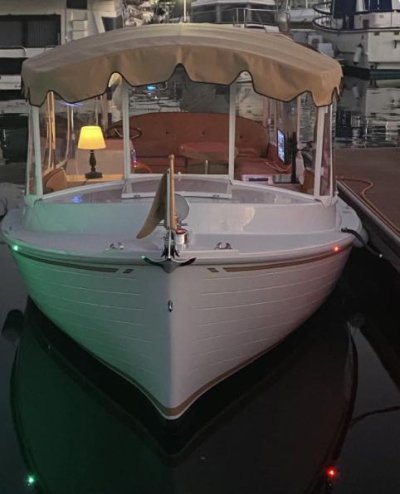jomarjr
Member
Hello everyone!
We are in the middle of a restoration on our 1980 Albin 36 trawler and have been making headway with upgrading and replacing systems.
I have gone ahead and removed ALL electrical elements from the boat, including wiring. We (me and a marine electrician friend) are redoing all of this because there were some previous “repairs” that made it unsafe. Instead of going through it, it was easier to start from scratch and do it right.
I’m looking for insight on the AC side of things and whether or not you would add AC power to a boat throughout or not. The boat has ten 120/15 plugs throughout, AC connection to a fridge, battery charger, 2 Aircon units, and a 3kw genset. My thought is to not rewire the outlets or fridge with AC but to replace the receptacles with DC outlets, a mix of 12v plugs and USB/USB-C plugs.
Our electrical cabinet is near the shore power and Aircons and if I don’t rewire the plugs, then I won’t have any AC runs throughout the boat. I would most likely add a dual 120/15 plug at the panel, but that would be it.
Are there any disadvantages I am missing with this? All of our devices are USB/USB-C except my MacBook, to which I have a 12v plug already for travel. Our TV and stereo is 12V and we won’t be using any appliances like a Micro or Coffee Pot.
The Shore/Gen power would solely be used to power the battery charger and Aircons when needed.
I feel like AC power on boats is more of a convenience for those that aren’t full time on a boat than a requirement for full timers who have all the 12v equipment anyway.
We are in the middle of a restoration on our 1980 Albin 36 trawler and have been making headway with upgrading and replacing systems.
I have gone ahead and removed ALL electrical elements from the boat, including wiring. We (me and a marine electrician friend) are redoing all of this because there were some previous “repairs” that made it unsafe. Instead of going through it, it was easier to start from scratch and do it right.
I’m looking for insight on the AC side of things and whether or not you would add AC power to a boat throughout or not. The boat has ten 120/15 plugs throughout, AC connection to a fridge, battery charger, 2 Aircon units, and a 3kw genset. My thought is to not rewire the outlets or fridge with AC but to replace the receptacles with DC outlets, a mix of 12v plugs and USB/USB-C plugs.
Our electrical cabinet is near the shore power and Aircons and if I don’t rewire the plugs, then I won’t have any AC runs throughout the boat. I would most likely add a dual 120/15 plug at the panel, but that would be it.
Are there any disadvantages I am missing with this? All of our devices are USB/USB-C except my MacBook, to which I have a 12v plug already for travel. Our TV and stereo is 12V and we won’t be using any appliances like a Micro or Coffee Pot.
The Shore/Gen power would solely be used to power the battery charger and Aircons when needed.
I feel like AC power on boats is more of a convenience for those that aren’t full time on a boat than a requirement for full timers who have all the 12v equipment anyway.



